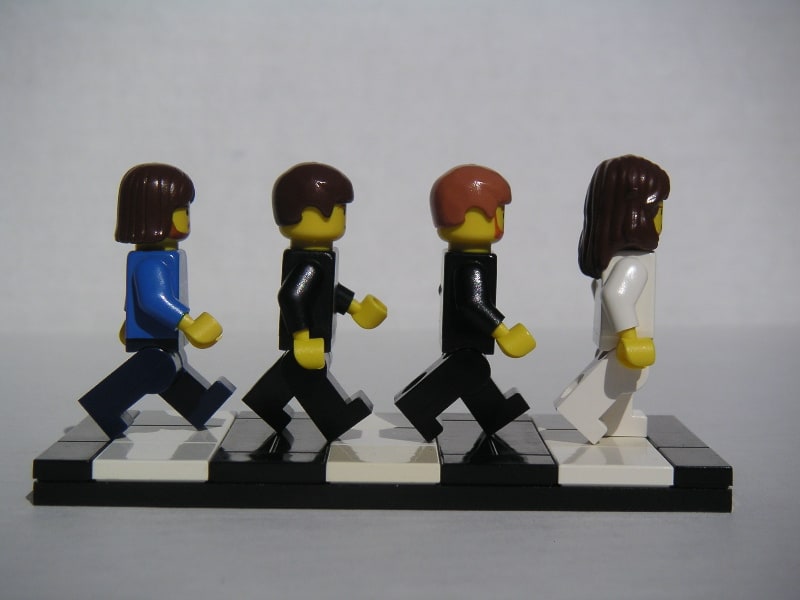As the story goes, three companions met in college in the most cosmopolitan city in the known world. There they decided to come together, giving up the usual trappings of success. Not content with the pursuit of career, family, or fortune, they pooled their resources to form a brotherhood. Others would soon join them.
Don’t be fooled though, this is not the story of Ignatius, Xavier, and Faber, college roommates in sixteenth-century Paris though they were. This is the story of some dudes from NYU living together in NYC.
If you’re not in the mood for reading Hilary Howard’s fine NY Times article, here’s their story (or, you could just check out this video, I guess): They are four college friends. They have been living together, as roommates, for the past eighteen years. They’re approaching forty now, and they fill their bachelor pad (code name: Fortress Astoria) with both comic books and expensive spices. Their bedrooms contain super hero costumes and sleek Macs. Their friendship has withstood changing girlfriends and careers, and the four clearly enjoy living together. “We’ve somehow drifted into this place where we are really close, and care about each other deeply, and yet we give each other lots of space and stay out of each other’s daily business,” said Mr. Brown, roommate and senior editor at VH1.
Hilary Howard, writes of them:
Sociologically, the men represent the apotheosis of two trends in American life. …[T]he most recent census figures suggest that many people do not want to live alone; they prefer or need the company. The number of roommates in nonfamily households in New York City increased by more than 40 percent between 2000 and 2010. At the same time, Americans, especially men, have been pushing back the age at which they first marry — for men, it climbed to 28.2 years in 2010, up from 26.8 a decade earlier.
Trends? Recent census figures? I have to smile. The phenomenon Howard writes about, the preference for companionship over going-it-alone might not have a lot of echoes in recent US history, but it’s certainly no new thing. Attraction to non-family communal living has been the impetus of religious life for millennia. In Christianity, communal living got formalized by the Italian monk Benedict of Nursia, who lived in the 500s. He jotted down his rules for communal living, and they’ve guided monastic living in the West ever since.
Fast-forward a thousand years to St. Ignatius and co. when they were students in Paris. Recognizing that they could do more breaking bread together as compañeros, they chose communal living to better pursue God’s call to them.
Jump ahead to first half of the twentieth century and the Catholic Worker movement. Communal living, simplicity, and shared prayer are the pillars that inspired the likes of Dorothy Day and Peter Maurin to recognize God in the faces of the poor and hungry. Those same pillars still animate the Catholic Worker houses found around the world today.
***
Whether it’s four artsy NYU grads or a bunch of vowed religious living together, the “otherliness” of it all strikes most people – to put it in Midwestern politesse – as… different. The fact that the NYU quartet gets a feature in the NYT indicates that they are a bit of an oddity.
One of them speaks of giving up a lucrative career in favor of communal living and following his passion in the arts. “ ‘To my friends who were married and had kids, what I did was incomprehensible,’ he said. ‘I knew that if I’d stayed, I’d probably be making tons of money, but I would have been unhappy’.”
The cynic in me says, “All right, guys, time to turn off the Wii and get serious about life.” But then I remember that for me, too, communal living invites strange looks. My high school students never quite get over the fact that a bunch of celibate guys – aged 27-86 – would CHOOSE to live together. “How much are they paying you to do that? Why won’t they let you have a family?” my sophomores ask with all sincerity.
The underlying question seems a lot like the cynical side of myself: “so… when are you planning to settle down like a normal person?” All I can say in response is that, in my own Jesuit life, as for the NYU companions, community living offers the support to figure out – and unleash – something deeper down. And that might mean that I never get to settle down in the conventional sense. It’s something similar to one of the roommates that I feel; he says:
The freedom this has allowed me to figure out my own quirks and foibles — has been much more important than investing in things that might have tied me down to something that would have kept me from figuring those other things out.
Not everyone is called to communal living, to be sure. And family life is a beautiful thing – heck, it’s where we get our roots. But family life is where we get our wings to soar, too. To the men of Fortress Astoria, I say, “fly high, dudes.” Or as Ignatius might have said, “Go and set the world on fire.”
***
This is the time of year when young Jesuits commit to that different life, professing vows of poverty, chastity, and obedience. These are the “Happy Anniversary” of our choosing to live in community as brothers in the Lord, as different and normal, as ancient and new, as this communal life may be.
I dedicate this to my brother Jesuits, living together throughout the world. Fly high, dudes.




